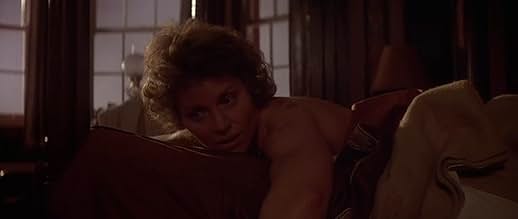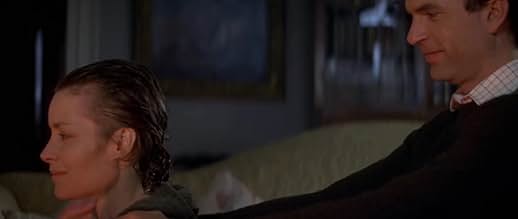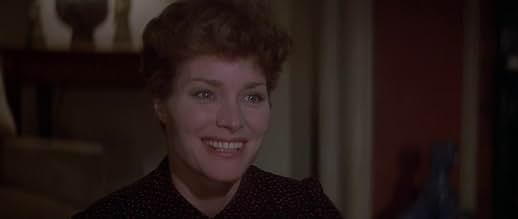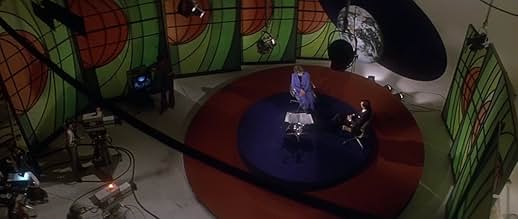Lisa Harrow(I)
- Actress
Intelligent and luminous red-haired Lisa Harrow was born in Auckland,
New Zealand, on August 25, 1943. A scholarship from the New Zealand
Queen Elizabeth II Arts Council is what sent Lisa studying abroad.
Accepted by the Royal Academy of Dramatic Art in London, she later was invited to become a member of the Royal Shakespeare Company and, in her very first season (1969), portrayed "Olivia" opposite Judi Dench in "Twelfth Night". Assorted RSC credits included "Desdemona" in "Othello", "Anne Boleyn" in "Henry VIII" and "Portia" in "The Merchant of Venice". Earning a distinct reputation over time, she scored other successes with her "Juliet" opposite John Hurt's "Romeo", her "Eliza" in "Pygmalion", and as "the Queen" in "The Eagle has Two Heads", directed by actress Susannah York.
In mid-career, Lisa began to grace occasional films. She appeared opposite Glenda Jackson in the Italian-made film The Devil Is a Woman (1974) [The Tempter], for which she won the Variety Club's "Most Promising Newcomer" award, and made a touching impression in the related period pieces All Creatures Great and Small (1975) and It Shouldn't Happen to a Vet (1976) [All Things Bright and Beautiful].
Lisa met New Zealand actor Sam Neill during filming of The Final Conflict (1981) [The Omen III] and the two developed an off-camera relationship that produced their son, Tim Neill, in 1983. More awards came Lisa's way as she matured into character roles. She won an Australian "Oscar" for her superb work in the powerful drama The Last Days of Chez Nous (1992) and the Grand Jury award at the Sundance Film Festival, as well as an Independent Spirit Award nomination, for her role in Sunday (1997).
A standout among Lisa's TV credits is Man and Superman (1982), which developed following the successful mounting of a stage production starring Peter O'Toole. She also gave a distinguished performance in the title role of the epic mini-series Nancy Astor (1982).
In 1997, she and her husband (from 1991), Dr. Roger Payne, a renowned whale-biologist by trade and documentary producer/director, moved to the United States with her son, Tim. Together, the couple share strong environmental concerns. In 2004, she authored the environmental handbook What Can I Do?
Since her move to the U.S., Lisa has been an increasingly formidable presence on the live stage with such daunting productions of "Wit", "Medea", "The Lion in Winter" and "Mary Stuart", among her vast credits. In 2015, Lisa was appointed an Officer of the New Zealand Order of Merit for her services to the dramatic arts.
In later years, Lisa focused more strongly on TV as opposed to film work. She had a plentiful number of roles in both the British series and mini-series formats, including the title roles in the mini-series Nancy Astor (1982) and Lizzie's Pictures (1987); the series dramas A Sense of Guilt (1990), Always Afternoon (1988); and Nonni und Manni (1988); as Mama Strauss, the composer's wife, in the biopic European mini-series Strauss Dynasty (1991); the crime series Kavanagh QC (1995) and the romantic comedy series Step Dave (2014). Sporadic filming into the millennium has included the drama Country (2000) and family fantasy Henry (2017).
Accepted by the Royal Academy of Dramatic Art in London, she later was invited to become a member of the Royal Shakespeare Company and, in her very first season (1969), portrayed "Olivia" opposite Judi Dench in "Twelfth Night". Assorted RSC credits included "Desdemona" in "Othello", "Anne Boleyn" in "Henry VIII" and "Portia" in "The Merchant of Venice". Earning a distinct reputation over time, she scored other successes with her "Juliet" opposite John Hurt's "Romeo", her "Eliza" in "Pygmalion", and as "the Queen" in "The Eagle has Two Heads", directed by actress Susannah York.
In mid-career, Lisa began to grace occasional films. She appeared opposite Glenda Jackson in the Italian-made film The Devil Is a Woman (1974) [The Tempter], for which she won the Variety Club's "Most Promising Newcomer" award, and made a touching impression in the related period pieces All Creatures Great and Small (1975) and It Shouldn't Happen to a Vet (1976) [All Things Bright and Beautiful].
Lisa met New Zealand actor Sam Neill during filming of The Final Conflict (1981) [The Omen III] and the two developed an off-camera relationship that produced their son, Tim Neill, in 1983. More awards came Lisa's way as she matured into character roles. She won an Australian "Oscar" for her superb work in the powerful drama The Last Days of Chez Nous (1992) and the Grand Jury award at the Sundance Film Festival, as well as an Independent Spirit Award nomination, for her role in Sunday (1997).
A standout among Lisa's TV credits is Man and Superman (1982), which developed following the successful mounting of a stage production starring Peter O'Toole. She also gave a distinguished performance in the title role of the epic mini-series Nancy Astor (1982).
In 1997, she and her husband (from 1991), Dr. Roger Payne, a renowned whale-biologist by trade and documentary producer/director, moved to the United States with her son, Tim. Together, the couple share strong environmental concerns. In 2004, she authored the environmental handbook What Can I Do?
Since her move to the U.S., Lisa has been an increasingly formidable presence on the live stage with such daunting productions of "Wit", "Medea", "The Lion in Winter" and "Mary Stuart", among her vast credits. In 2015, Lisa was appointed an Officer of the New Zealand Order of Merit for her services to the dramatic arts.
In later years, Lisa focused more strongly on TV as opposed to film work. She had a plentiful number of roles in both the British series and mini-series formats, including the title roles in the mini-series Nancy Astor (1982) and Lizzie's Pictures (1987); the series dramas A Sense of Guilt (1990), Always Afternoon (1988); and Nonni und Manni (1988); as Mama Strauss, the composer's wife, in the biopic European mini-series Strauss Dynasty (1991); the crime series Kavanagh QC (1995) and the romantic comedy series Step Dave (2014). Sporadic filming into the millennium has included the drama Country (2000) and family fantasy Henry (2017).

























